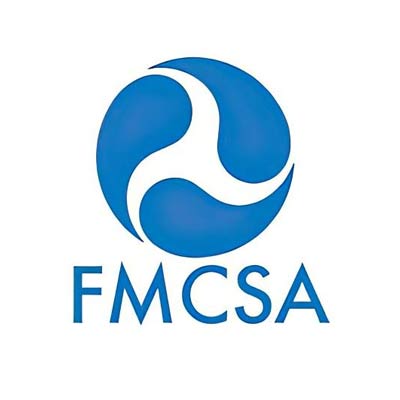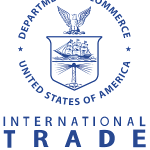ABA’s African American Motorcoach Council Fly-In Advances Industry Advocacy
Industry leaders and operators pressed lawmakers on connectivity, security funding, and supply chain challenges during ABA’s recent Capitol Hill Fly-In Event
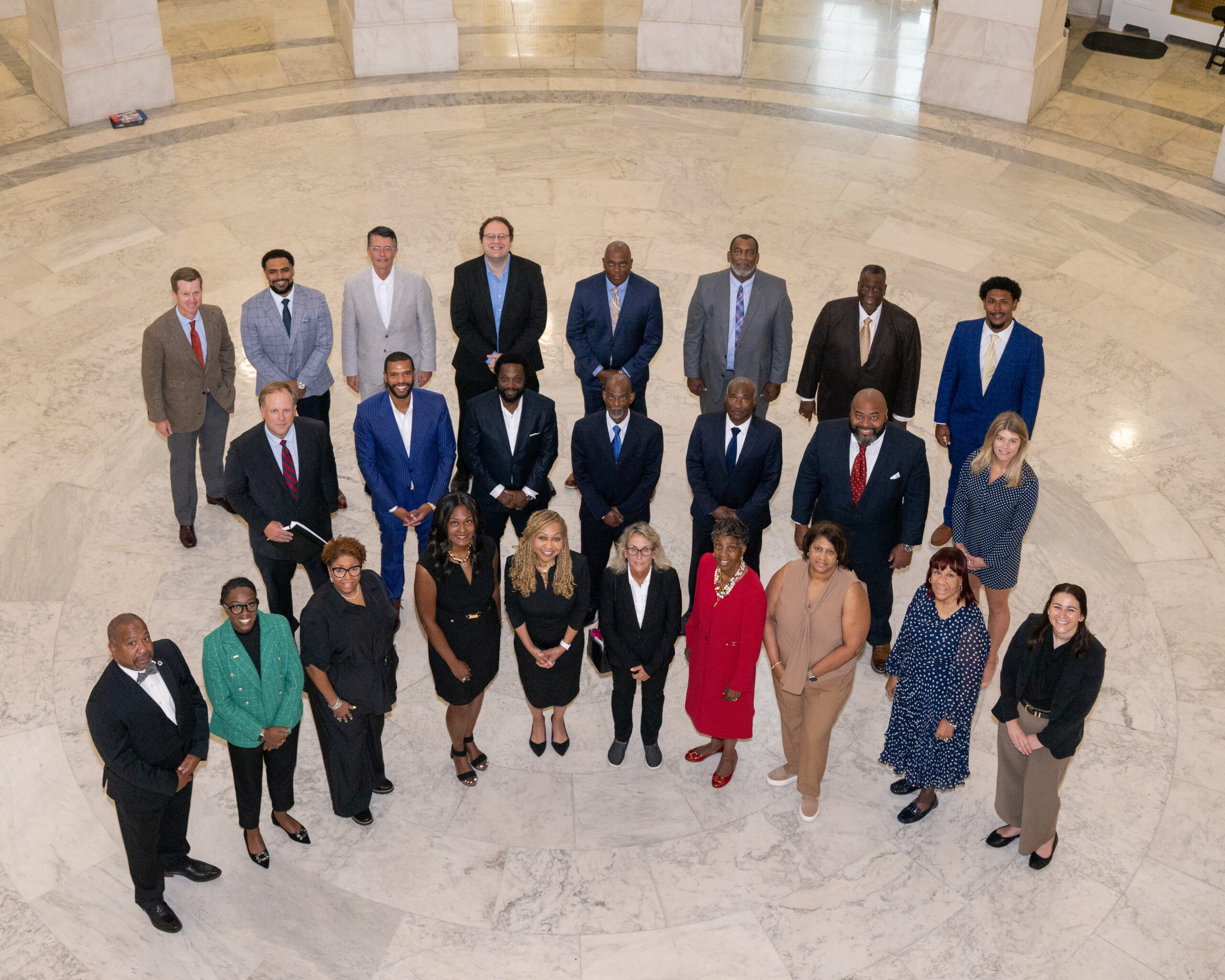
The American Bus Association’s African American Motorcoach Council (AAMC) recently held its first Capitol Hill Fly-In. This event highlighted both the economic significance of the motorcoach industry and the specific challenges faced by African American-owned operators. Over the course of a packed day, participants met with lawmakers and staff to press for policies that sustain an industry responsible for carrying nearly 400 million passengers each year, generating more than $90 billion in economic activity, and serving as a vital transportation lifeline in communities often overlooked by other modes of transit.
A Clear Policy Agenda
Led by Callie Hoyt, ABA’s Senior Vice President of Public Affairs and Government Relations, participants emphasized three urgent priorities. First, they urged Congress to include motorcoach operators in the upcoming Highway Bill reauthorization, especially for rural connectivity programs where buses often serve as the only mode of public transportation. Second, they called on lawmakers to resist tariffs that would further strain fragile supply chains, increasing the costs of vehicles and parts at a time when operators are already facing higher fuel prices and insurance premiums. Finally, they advocated restoring funding to the Intercity Bus Security Grant Program, which helps protect passengers and strengthens emergency response preparedness.
As Hoyt noted, “These targeted conversations positioned motorcoaches as a cost-effective, resilient, and indispensable part of America’s transportation network.”
Community Voices, Shared Experience
What distinguished this event from many Hill visits was the deep sense of community among the operators. Ja’mar Tunstall of Imperial Charters described the experience of visiting congressional offices as “like traveling across America,” noting that the perspective of hearing different priorities and needs created a clearer picture of how the industry fits together for the common good.
For Fitzgerald Wright of Wrights Charters, the value lay in recognition. “It felt great finally being recognized for who we are and what we do,” he said, explaining that many policymakers were unaware of the role operators play in emergency response, often being among the first to move people and resources into areas struck by disaster.
Clarence Cox, III of Georgia Coach Lines, emphasized the unity he saw in the group: “Look at what happens when we come together, putting aside our differences, and creating the synergy we need to speak with one voice and move our industry forward.”
Roni Weiss of Travel Unity reflected on both the intensity of the day and the reality of sustained advocacy. After attending several scheduled meetings, he spent time walking the halls of the House buildings, introducing himself and making contacts. “Lobbying is a full-time job,” he noted, adding that the real lesson was collaboration. “We aren’t in this alone. My next step will be to build relationships with others advocating for marginalized communities to ensure there are spaces for them to travel and join our industry.”
Said Jordan Pearson from the United Motorcoach Association (UMA) in a social media post, “The last few days were packed with learning, advocacy, and collaboration. The energy was high, the conversations were meaningful, and I left inspired about the progress UMA and ABA can continue to make together.”

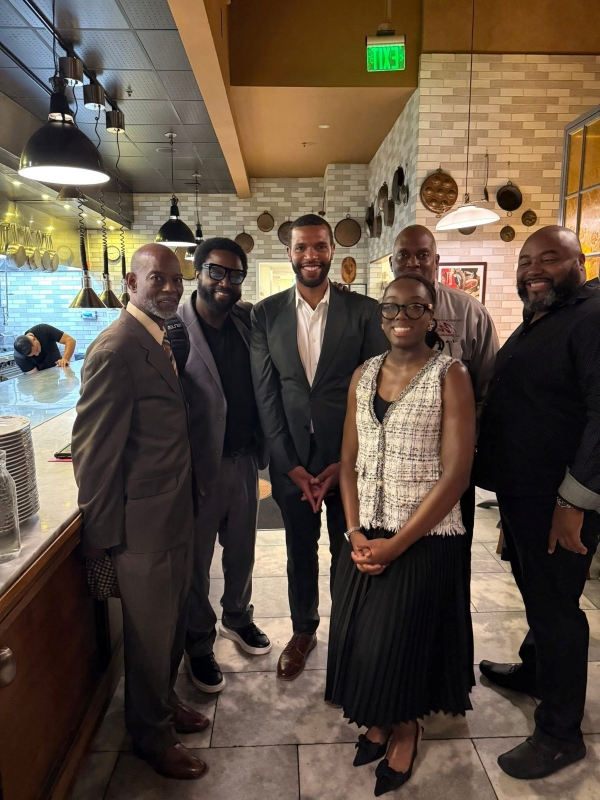
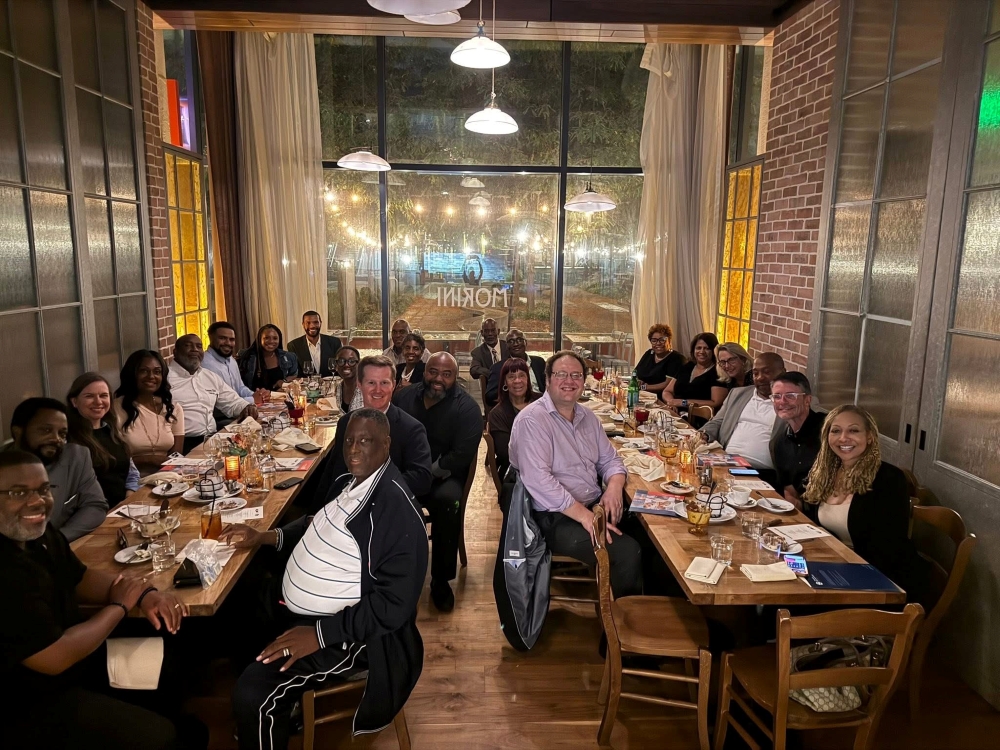
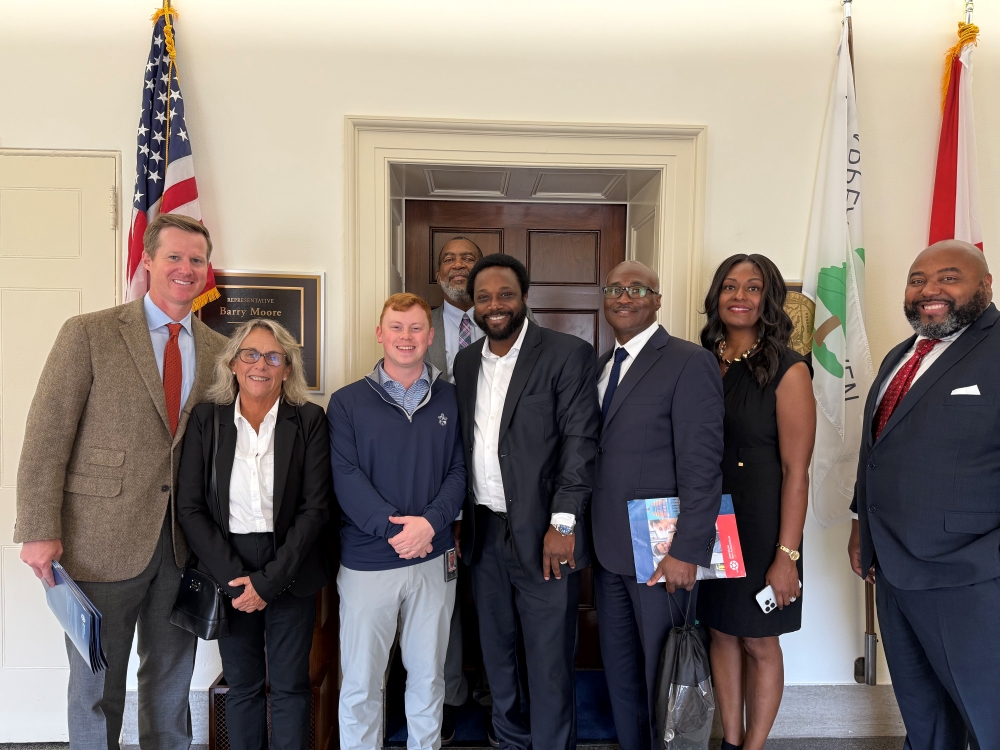
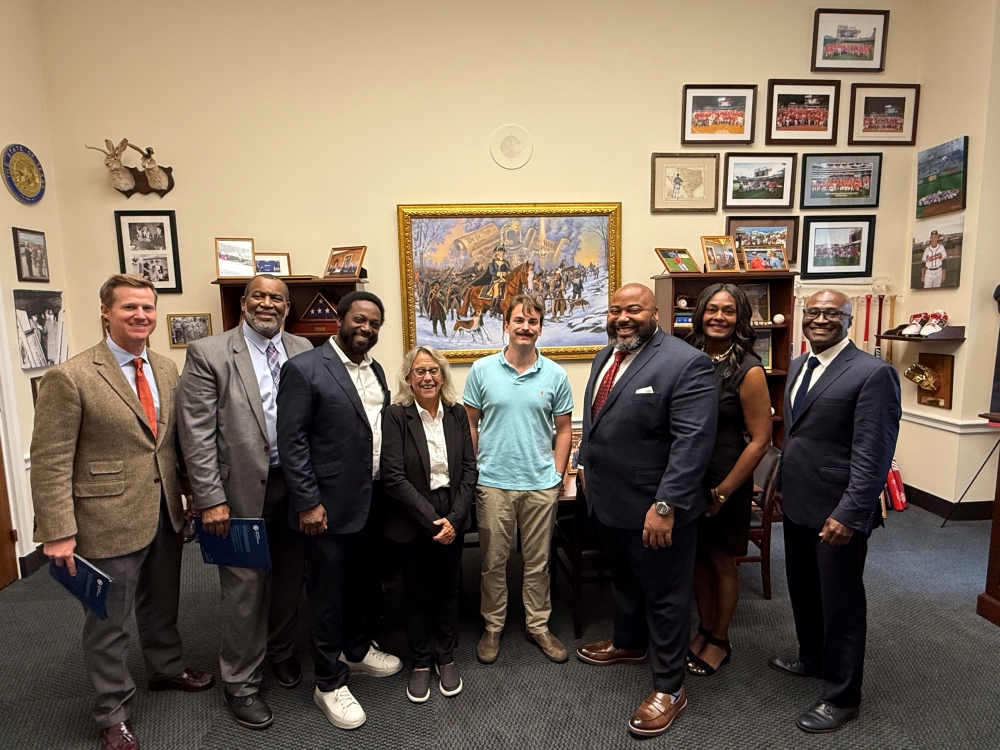
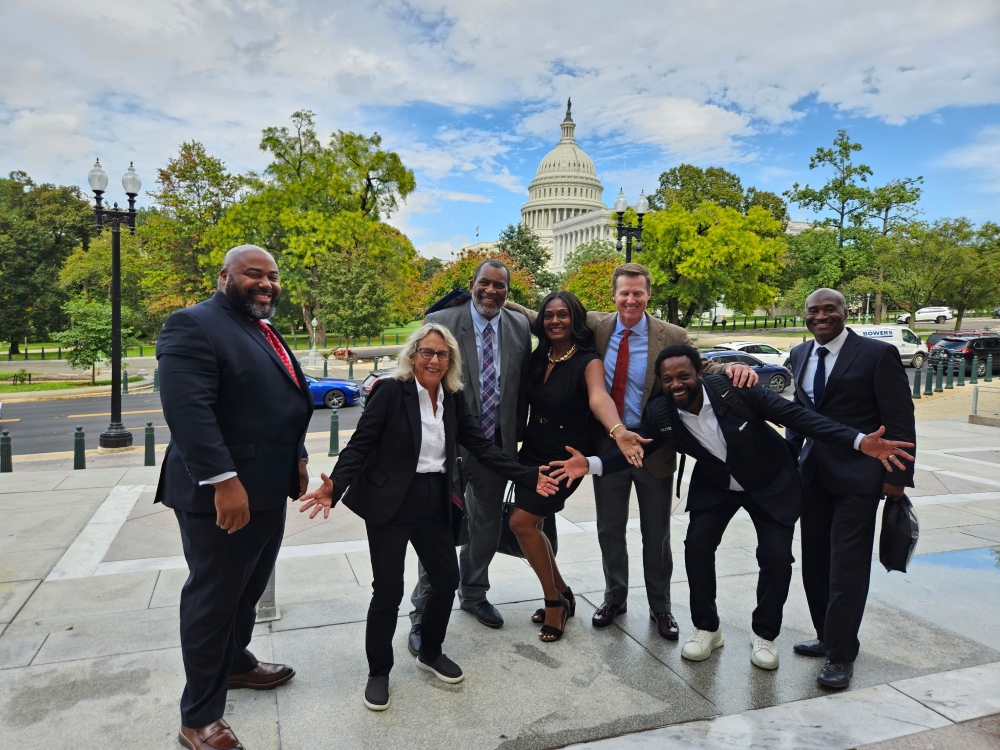
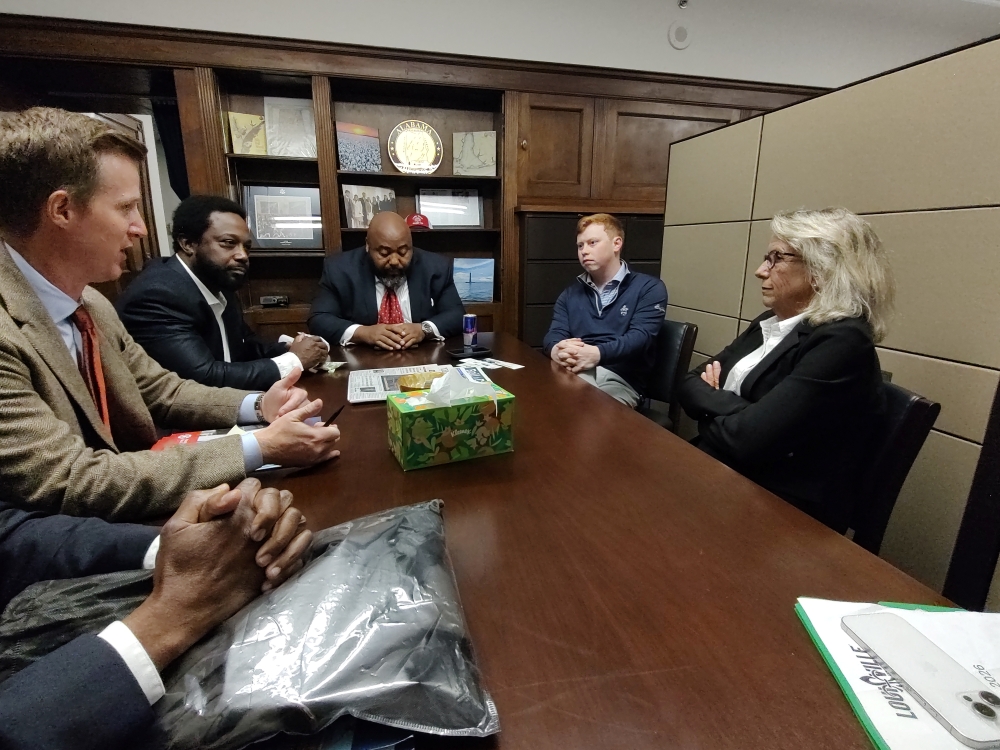
Unexpected Wins on the Hill
Beyond policy discussions, the Fly-In also provided opportunities for participants to strengthen their businesses. Louisville Tourism’s Saundra Briggs-Robertson reported not only showcasing data on the motorcoach sector’s economic benefits to her city but also recruiting operators to bring future tours to Louisville. An even more tangible success came when a representative from Prevost closed a bus sale while walking through the halls of Congress alongside the group. These moments illustrated how advocacy can extend beyond policy into networking, deal-making, and business development.
Fred Ferguson, ABA President and CEO, remarked on the momentum generated by the event. “ABA’s first micro fly-in exceeded all expectations, with attendance doubling our initial projections. This reinforced our belief that continuous and consistent advocacy is crucial in shaping Capitol Hill’s view of the bus and group travel industry. Expect more micro events in the future.”
Setting a New Standard
By the end of the day, participants and organizers alike recognized that the Fly-In was not just about policy, but about presence. Gathering African American-owned businesses together to increase their visibility on Capitol Hill carried weight, as did the direct conversations with lawmakers who left better informed about the industry’s needs and contributions.
Lew Myers, ABA Foundation’s Director of Policy, Research, and Impact, summed it up: “Our first Micro Fly-In was an overwhelming success, further reinforcing the value ABA brings to its members. This inaugural event has set a new standard for ABA advocacy, creating meaningful connections and helping to shape how lawmakers view our industry moving forward.”
The event was made possible thanks to the support from sponsors Georgia Coach Lines, the National Association of Motorcoach Operators, Prevost, ABC Companies, All Aboard America! Holdings, and Louisville Tourism.
For the African American Motorcoach Council, this first Fly-In was more than an advocacy exercise—it was a declaration of presence, unity, and strength. And with plans to make it an annual tradition, its impact will only grow stronger in the years ahead.


